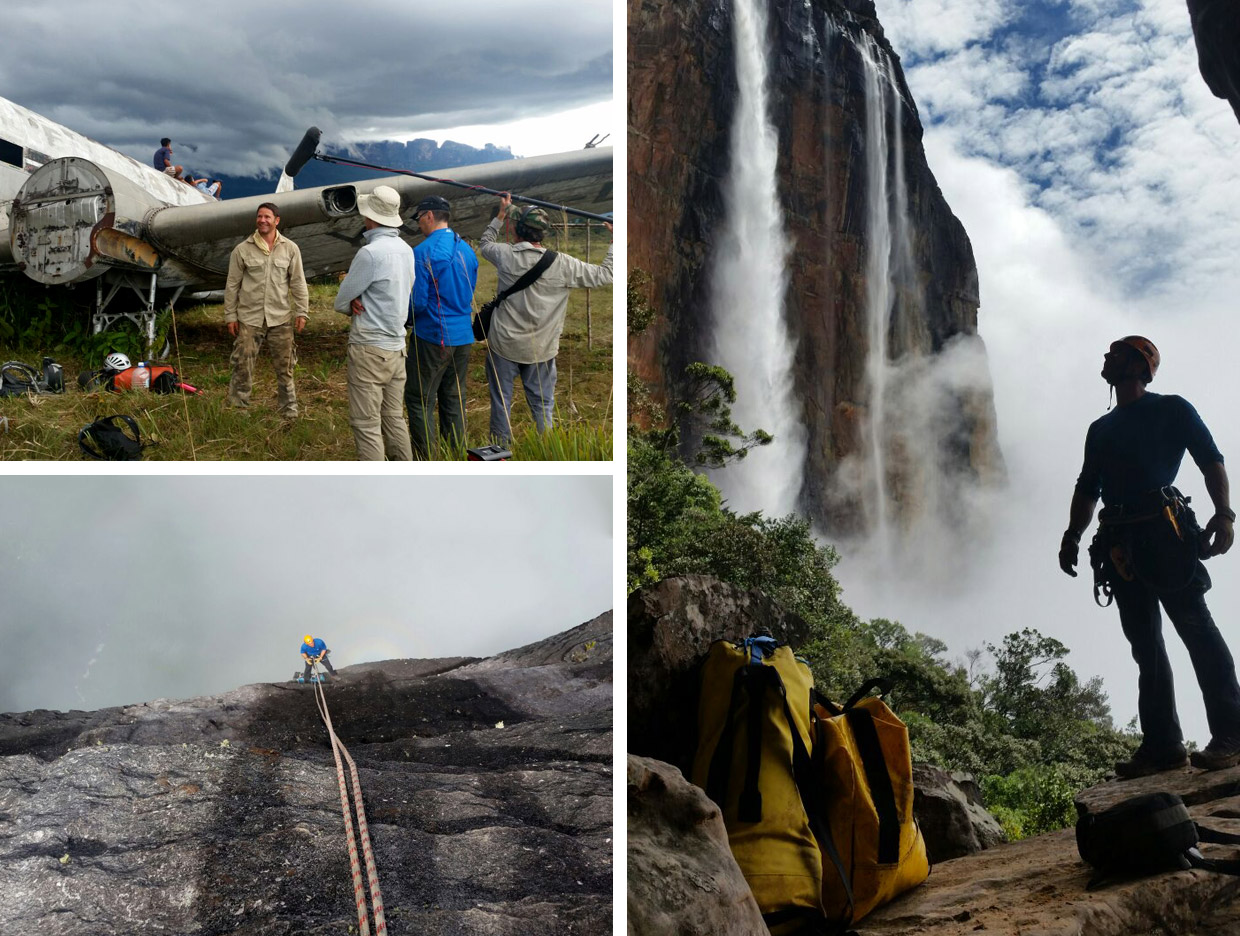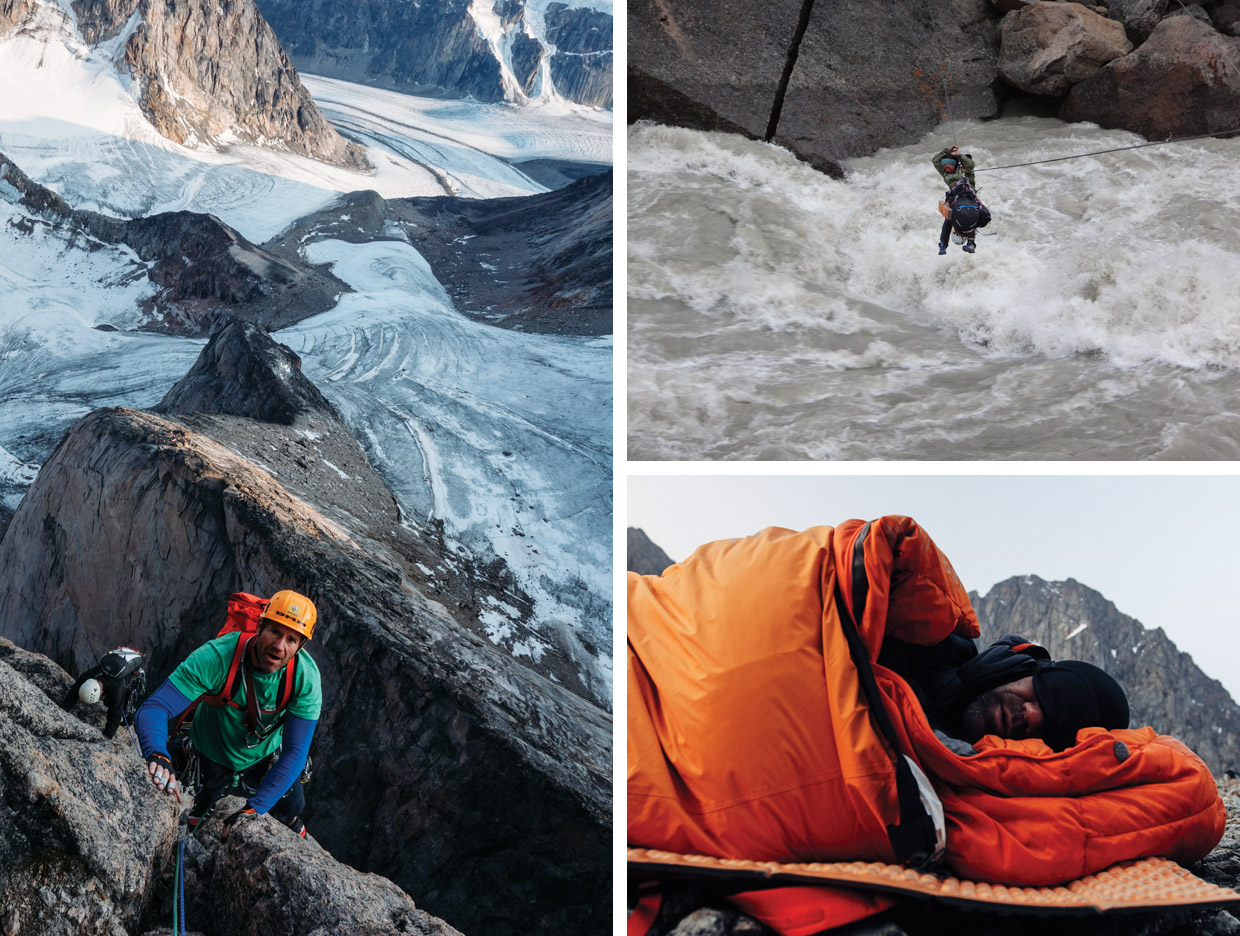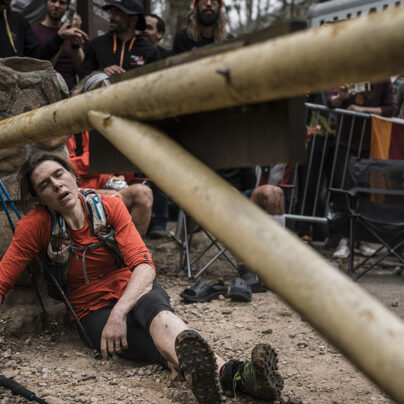Life In The Extreme
An Interview with Steve Backshall
When a dramatic cliff fall left wildlife television presenter Steve Backshall with a broken back, he feared he’d never be able to walk again. He spoke to Jamie Maddison about his recovery, how a challenging expedition to Canada’s Baffin Island helped him get his confidence back, and his recent extreme mountain expedition to Venezuela.
Sidetracked: Thanks for chatting to us Steve. So, starting from the beginning, did you have an adventurous childhood?
Steve: Very much so, yes. My mum and dad are very adventurous people. Both of them worked for the airlines. They took us all over the world to India, Africa, Sri Lanka, and South America. They’re still very, very adventurous people, even now. They brought us up on a small holding surrounded by rescue animals so it was an adventurous childhood. That’s why I’m doing what I do now.
Did you know from an early age that you wanted to work with animals and conservation, or was that something that came later?
I knew that I wanted to work in this field, but not that I wanted to be in television. That came later.
What’s your strongest memory of being with an animal? And do you have a favourite?
In Antarctica, I was diving beneath a jade-green iceberg when a female leopard seal came in and flashed her teeth into the camera, did barrel rolls and pirouetted around the cameraman and me. That was an experience that I will never forget. And my favourite animal is the wolf. I’ve had several opportunities to film them in the wild and they’re always very challenging. They have so much in common with the dogs that we share our houses with, but at the same time they are essentially wild. I’ve always been fascinated with them for that reason.
You had a few adventures when you were growing up. Can you tell us about your attempt to cross West Papua?
I was in my early 20s, writing a guidebook on Indonesia for Rough Guides. West Papua belongs to Indonesia so I decided to extend my trip there by three months and attempt to be the first person to walk across the country. It was a spectacular failure. I had some extraordinary adventures and crossed through outback territory, meeting people that were still living a traditional hunter-gatherer lifestyle. But ultimately, it was a step too far for me at that age. I was yet to learn all the skills that I needed to lead an expedition of that magnitude, and ended up turning tail and not completing it.
Soon after this, you went on to launch your career in television. How did that come about?
I thought I was going to be a writer. I’d published several books and articles in the national press, but I was struggling to even pay my rent. It was so hard trying to get by. Then I had an idea. I got a camera and took myself out to Columbia, which was, at the time, the most scary, windswept place I could think of. I spent about a month in the jungle, filming myself catching snakes and spiders and scorpions and living rough in the jungle. I made a film of it, and sold it to National Geographic’s television channel, then spent the next five years working for them as their Adventurer-in-Residence.
I had an idea. I got a camera and took myself out to Columbia, which was, at the time, the most scary, windswept place I could think of. I spent about a month in the jungle, filming myself catching snakes and spiders and scorpions and living rough in the jungle.

Do you come up with your own ideas for your projects?
The majority of places that we go to, the majority of animals that we choose to film, are my ideas. Every single second of every day, I’m focused on expeditions and stories and the best places to find particular animals. It’s become a real drive and focus for me. I love this life.
What’s been the highlight of your career for television?
The first ascent of Mount Upuigma in Venezuela is definitely one of the highlights. We spent five days on the rock face, sleeping on portaledges to get the top. We were the first people to have ever climbed it. The more we explored the lost-world forest on the top, the more we found that it was extraordinary and exciting, and that it offered the possibility of discovering species that were totally new to science. It was a remarkable expedition.
Can you tell us a little more about what it was like to live on the rock face, were you surprise about any of the wildlife that you encountered?
Living on vertical rock faces has in the past been a joy. The sense of exposure, the views, the gentle rocking of a portaledge as you drift off to sleep… this time, we found ourselves sleeping on a narrow rock ledge covered in spiky boulders, and constantly hammered by rain, with lightning ripping past, scorpions and bullet ants and exactly zero sleep. For six nights. It was horrid.
From the sounds of things, this was an extremely dangerous expedition?
Yes, the most dangerous expedition I’ve ever been on, and none of us could have expected it. When you try a first ascent you are relying on experience and a certain amount of chance. Turned out, the rock was falling apart, and lashed with rain and slime. There was constant rockfall and several big falls. A truly terrifying experience.
When did your passion for rock climbing come about?
In my late teens. It just a bit of fun to begin with, but I soon realised there is a philosophy to it. You can get more from it psychologically and physically than a lot of other sports. It requires an incredible amount of focus and confidence, and it can take you to places that very few people can go. It gives you great adventures, even right here in the UK. It has brought an awful lot to my life, but it also brought my worst injury and one that probably should’ve killed me.
What happened?
I was leading a climb in the Wye Valley that was right at the edge of my ability. It was shortly after rain, and the climb was quite greasy and wet. I came off, and hit the ground from at least 10 metres up, if not more. I fell onto hard spiky rocks at the bottom and broke my back in two places and smashed my left ankle into a pulp. I’ve had 12 operations since. I spent the best part of a year-and-a-half on crutches and taught myself to walk over again. It’s been ceaseless, but my first thought was how soon I’d be able to start climbing again.
So the accident didn’t put you off climbing?
It had an enormous effect on my confidence. It’s taken me a long time to get to the stage where I can think about doing hardcore mountaineering expeditions again. Going out to Canada’s Baffin Island last summer was a big part of that. I needed to prove to myself that I am fixed and right, and that I’ve got my mojo and confidence back.

You climbed Mount Asgard on that trip. Can you tell us a big more about that?
It was a big expedition. Very few people get to penetrate into the interior of Baffin Island as there’s no other way of travelling through the park than on foot. If you’re walking for a month carrying everything you need: camping equipment, food, fuel, and climbing stuff, you’re extraordinarily heavy. Our packs weighed 35 kilos, and carrying that amount of weight for a month, for ten-hour days, gives you a proper battering. I was in pieces by the time I came back down. But being in one of the true last wildernesses on earth, looking out at the horizon in every direction and knowing that there were no people, no influence of human beings whatsoever, and that the majority of peaks you’re looking at have never been climbed, is very special, particularly in this modern world where we have this sense that everything’s been conquered by man. Places like Baffin prove that it hasn’t.
Do you have any plans for bigger, more remote expeditions?
I’ve always got plans. I have a list of expeditions as long as your arm that I’m dying to do. It’s just a question of finding the time to do them. I’m definitely going to do another expedition again soon, but this one isn’t for television: it’s purely for me and for my state of mind.
Do you find that it’s important to take trips that are just for you, that aren’t for work?
I do. I think more than anything it’s getting away from phones and emails. My job is very complex; I love it. I write at least two books a year and I’m writing my Master’s thesis at the moment. I have one of the busiest television careers of anyone I know, and trying to do all that, plus conservation work, is endless. The only way that to get away from it is by going somewhere where there is no mobile phone signal or internet, and you can just completely disassociate yourself from the modern world and think about nothing more than where you’re going to camp that night, what you’re going to eat and how far you can go before you need to stop and rest. It’s really good for the soul.
What do you think the future holds for you?
I have to make sure that I continue getting across the messages that I think are important. By making programs that are packed with adventure and excitement, you appeal to people who didn’t even realise they like wildlife and wouldn’t normally tune into wildlife programs. Then, if you slip in a conservation message here or there, it’s going to reach a far broader audience and have a far bigger impact than a straight conservation program, which would either not be watched, or be watched by people who already agree with what you’re saying. By having that as an intrinsic part of my programs and books, I can attract people who are looking for a level of excitement, a level of danger, who wouldn’t normally watch a wildlife program. They wouldn’t normally watch, say, Springwatch and want to hear about lambing, but they might watch a program because they think a great white shark might eat me.
How do you think being outdoors helps children?
As a species, we have lived in the outdoors the entirety of our evolution, but over the last thirty years, we’ve suddenly become lazy. We are a blip in evolutionary time, and we need all the things that we have evolved in: sunlight, fresh air, exercise. There are things that you can only gain from a horse ride or going surfing. Even just walking a dog, or learning to identify birdcalls, or moth trapping – these things can give us benefits that are pointless to try and quantify. The results are so much more complex. I’ve never seen a kid who has gone horse riding for the first time and hasn’t come back beaming and smiling and filled with the joy of life in a way that you’re never going to see from someone watching a television program or playing a computer game. It’s extraordinarily important that kids get outside and learn about the natural world.
Later this year I’m on a UK tour which is a great chance for me to meet people who are into wildlife and expeditions, to answer their questions and tell tall tales about expeditions and animal encounters. There’ll be jaw-dropping wildlife moments, and a glimpse behind the scenes of the best job in the world!
Steve Backshall’s Extreme Mountain Challenge is currently being shown on BBC2 and on iPlayer.
Read Enclave of the Gods, Steve’s story from his Baffin Island Expedition in Sidetracked Volume Four.
Steve Backshall embarks on his nationwide ‘Wild World’ theatre tour from 19th October to 20th November. Tickets for the tour are on sale now and can be purchased at www.stevebackshall.com/tour. His new children’s novel ‘Shark Seas’ will be published in October.
Website: www.stevebackshall.com/tour
Twitter: @SteveBackshall
Facebook: stevebackshallofficial



